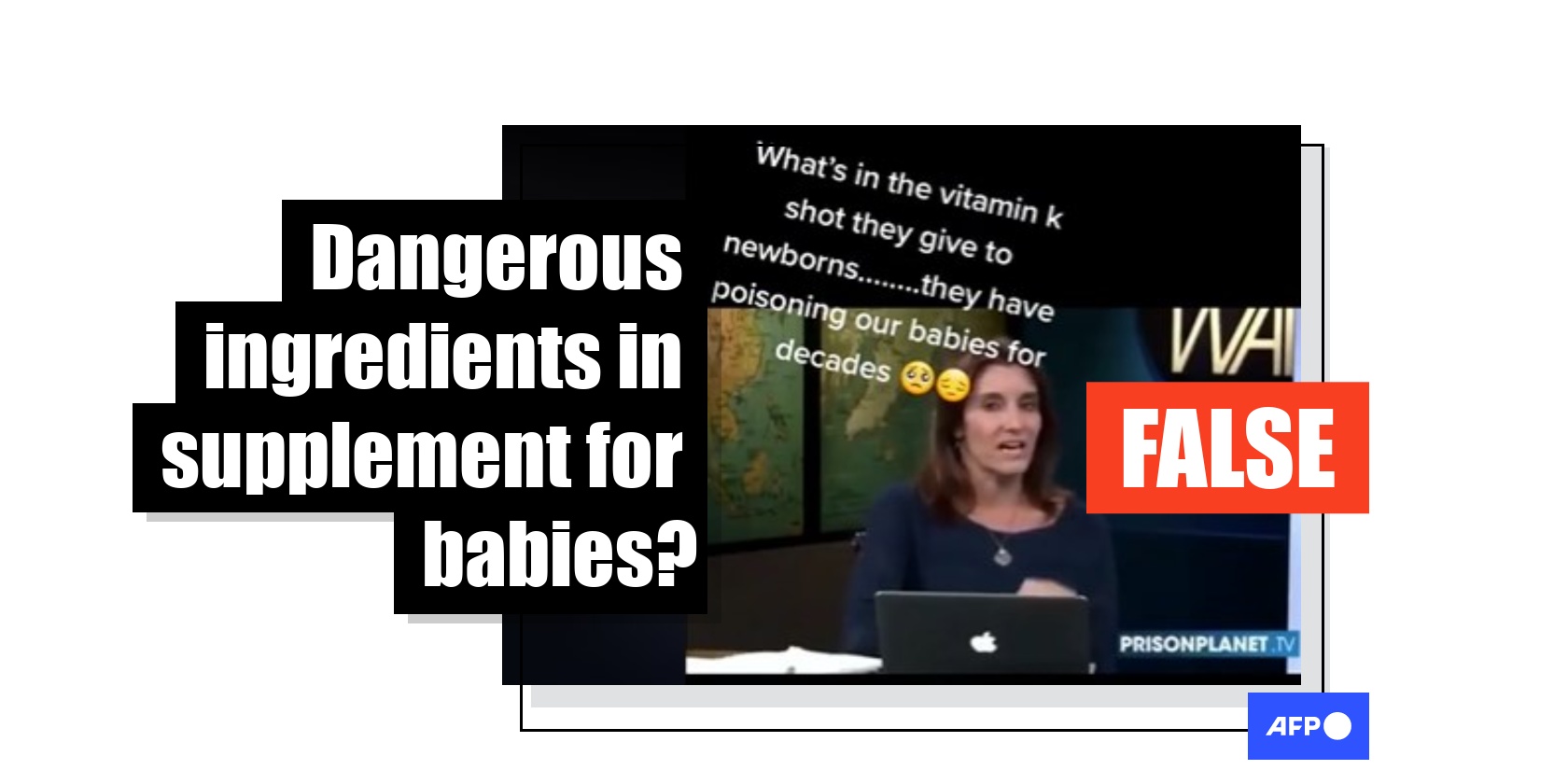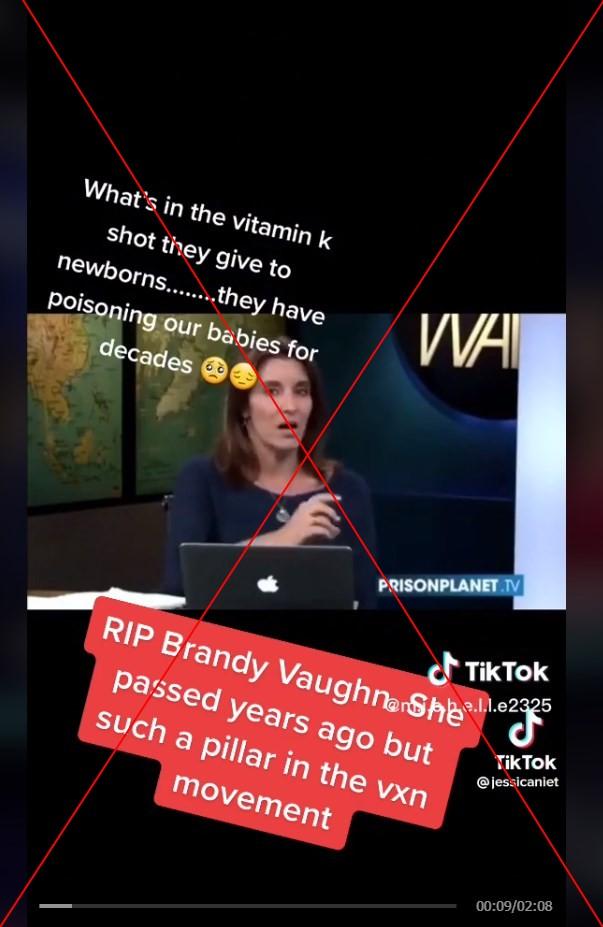
Vitamin K shot strongly recommended for newborns
- This article is more than two years old.
- Published on March 27, 2023 at 21:28
- 3 min read
- By Marisha GOLDHAMER, AFP Canada
"What's in the vitamin k shot they give to newborns ... they have poisoning our babies for decades," says text over a March 13, 2023 TikTok video.
The claim stems from another TikTok account, whose post accumulated thousands of shares on Instagram and Facebook before being deleted.

The text references Brandy Vaughan, an anti-vaccine activist who died in 2020. The clip, which can be found on Pinterest and YouTube, shows Vaughan on a 2018 segment of the "Alex Jones Show," a program that has previously spread conspiracy theories and medical misinformation.
In the video, Vaughan repeats false claims about the safety of the vitamin K shot.
"What I've really learned doing my research is this is all about profit. It's not about our health," she says.
But health organizations and experts across North America say the vitamin injection saves lives.
"The benefits of the vitamin K shot cannot be overstated," said Lena Claire van der List, a pediatrician at the University of California-Davis, in a March 22 email. "I have zero concerns about the additives that are required to stabilize and effectively deliver this life-saving medication to newborns."
Bleeding risks
The US Centers for Disease Control and Prevention (CDC) says on its website that babies "are born with very little vitamin K," which the body uses to "form clots and to stop bleeding."
Vitamin K Deficiency Bleeding (VKDB) is a rare but potentially life-threatening cause of bleeding in infants up to six months of age. The condition can develop quickly in the brain or other important organs.
"One out of every five babies with VKDB dies," the CDC says.
VKDB can be prevented with a single 0.5 to one-milligram injection of vitamin K between one to six hours following birth. The shot is part of routine newborn care recommended by the Canadian Paediatric Society, the College of Family Physicians of Canada and the American Academy of Pediatrics.
These organizations have repeatedly stood by the recommendation, saying evidence shows the danger of VKDB outweighs any possible adverse effects from the shot.
The InfantRisk Center at Texas Tech University says on its website that refusing the vitamin K shot "increases VKDB risk 81-fold."
Polysorbate 80
In the clip shared online, Vaughan says: "The main active ingredient (in the vitamin K shot) is polysorbate 80 (P80) -- and there are strong links to infertility, to auto-immune issues."
P80 is an emulsifier used in foods such as ice cream, as well as vitamins and vaccines, to hold ingredients together. It is a regular target of misinformation.
UC Davis's van der List said P80 enables vitamin K to dissolve in liquid.
"Parents should not be concerned about the concentration of polysorbate 80 in the vitamin K shot," she said. "P80 is designated by the (US Food and Drug Administration) as generally recognized as safe ... While there are limited studies about P80, no adverse effects have been reported in infants who received vaccines with P80."
Van der List pointed to one study that examined pneumococcal vaccines with and without P80 and found no safety concerns.
Another study of adjuvants, ingredients such as P80 that help vaccines work better, said: "No compelling evidence was found associating adjuvants and autoimmunity in humans."
Aluminum
During the "Alex Jones Show" segment, Vaughan shows an image of a vial with a label that says: "Contains no more than 100 mcg/L of aluminum."
Vaughan says: "Aluminum has no place in our body. It's a known neurotoxin, it's a heavy metal ... and we're injecting these into the bloodstream, so it goes straight to the vital organs."
Pfizer's vitamin K shot does include aluminum -- but the vial only carries a warning for its use in premature babies.
Such infants may receive calcium and phosphate solutions to help their kidneys. As these solutions also contain aluminum, they may lead to excess metal accumulation and nervous system damage when coupled with the vitamin K injection and the Hepatitis B vaccine.
However, the Children's Hospital of Philadelphia says on its website that "delaying vaccines to limit aluminum exposure" leaves healthy children vulnerable to "potentially dangerous pathogens."
"While infants receive about 4.4 milligrams of aluminum in the first six months of life from vaccines, they receive more than that in their diet," the hospital says. "Breast-fed infants ingest about seven milligrams, formula-fed infants ingest about 38 milligrams, and infants who are fed soy formula ingest almost 117 milligrams of aluminum during the first six months of life."
Thomas Hale, professor of pediatrics at the Texas Tech University Health Sciences Center, said the vitamin K shot is "one of the most effective things we do for newborns."
Copyright © AFP 2017-2026. Any commercial use of this content requires a subscription. Click here to find out more.
Is there content that you would like AFP to fact-check? Get in touch.
Contact us
